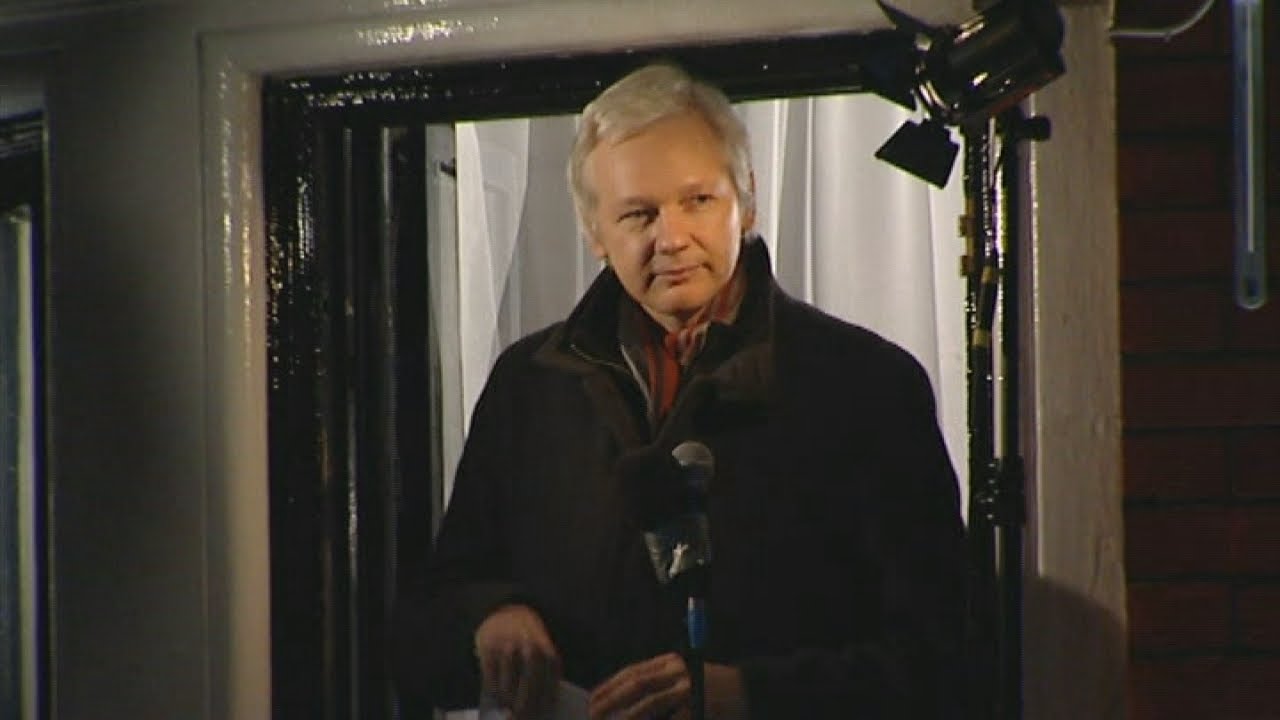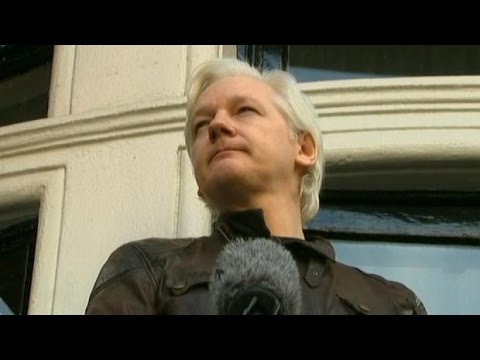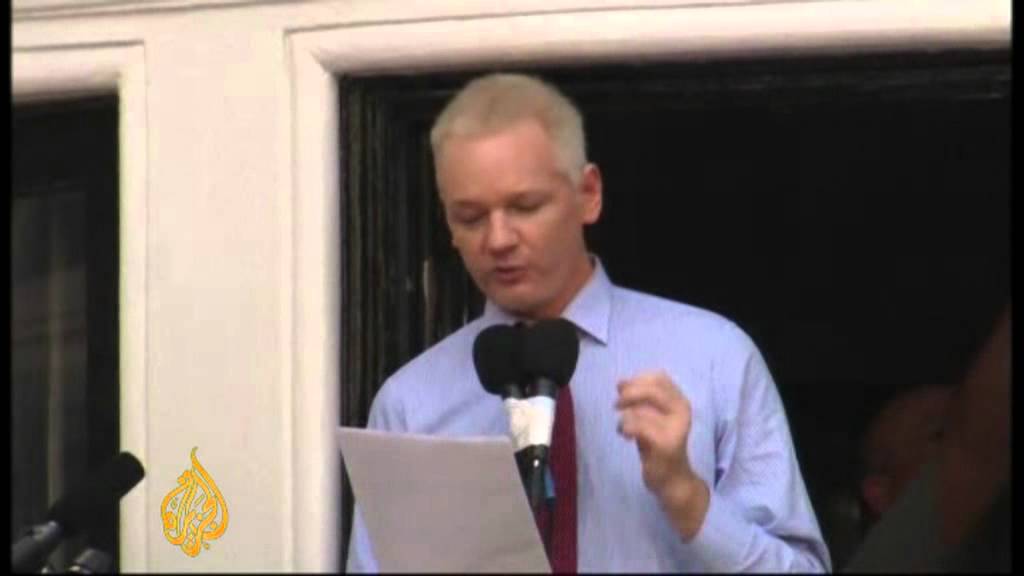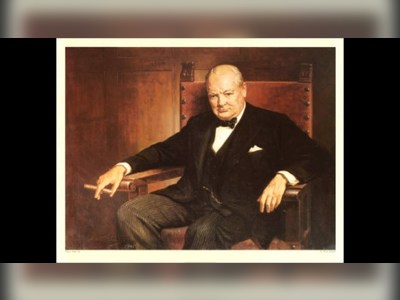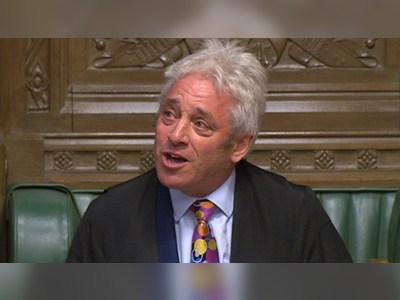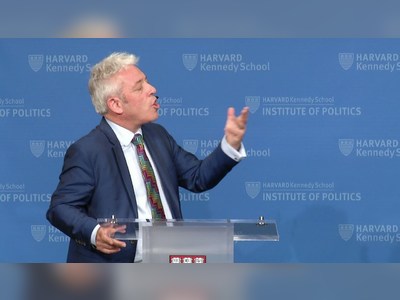British Heritage
Remember, Cherish, Learn.
beta
Julian Assange: Ecuador Embassy Balcony Speech, 2012
Julian Assange and the Shaping of Modern British Heritage.
Julian Assange, the enigmatic founder of WikiLeaks, has inadvertently and irrevocably shaped modern British heritage. Although an Australian native, Assange's actions and time spent in the UK have indelibly influenced Britain's perspective on freedom of speech, international diplomacy, and its standing in the global landscape.
On August 19, 2012, Julian Assange made a crucial speech that would mark a pivotal point in his life and the course of WikiLeaks, from the balcony of the Ecuadorean embassy in London. He sought asylum in the embassy to evade extradition to Sweden over allegations of sexual misconduct, fearing that this would eventually lead to his extradition to the United States. The allegations in Sweden were later dropped, but his fear of US extradition stemmed from the potential consequences of the significant leaks made by WikiLeaks.
During the speech, Assange challenged President Barack Obama to end what he called a witch-hunt against WikiLeaks, his whistleblowing platform, boldly claiming that, “As WikiLeaks stands under threat, so does the freedom of expression and the health of all of our societies.” He positioned WikiLeaks as an emblem of journalistic freedom, thereby shaping an international narrative of resistance against oppressive authorities.
This speech came to symbolise Assange's unyielding commitment to his cause, and solidified his image as a defiant figure in the global landscape, willing to confront powerful states to defend his principles of transparency and free speech. It highlighted his audacious nature, by likening his plight to that of the Russian punk band Pussy Riot and The New York Times, entities that were, in his view, also at odds with oppressive powers.
Assange's choice to claim asylum within the Ecuadorean embassy had broad geopolitical ramifications, particularly in relations between Britain, Ecuador, and Sweden. The decision by Ecuador's President, Rafael Correa, to grant Assange political asylum deepened a diplomatic standoff. The international tensions highlighted the friction between Latin American countries and Western European powers, showcasing Ecuador's readiness to defy international convention to uphold its own perspective on justice.
This diplomatic tussle left an indelible mark on British heritage, as the Assange case drew attention to the complexities of international law, the principle of diplomatic immunity, and the nation's stance on international human rights issues. It highlighted the diplomatic difficulties faced by Britain in maintaining its legal obligations while navigating the convoluted realm of international politics.
Assange's most impactful contribution to British heritage lies in the influence of WikiLeaks itself. Founded in 2006, the platform made international headlines in 2010 following the publication of a series of leaks provided by U.S. Army intelligence analyst Chelsea Manning.
The contents of these leaks were revealing and often embarrassing for many countries, including the United States. WikiLeaks, under Assange's leadership, challenged the conventional parameters of journalistic practice, pushing for greater transparency and accountability from governments. His actions stimulated a global conversation about the importance of freedom of speech, privacy, and the public's right to information.
The final chapters of Assange's story so far, including his confinement in the Ecuador embassy, his subsequent arrest, and ongoing detention in Belmarsh maximum-security prison, have brought forward serious questions about human rights and the UK's extradition laws. Despite the UK's initial refusal to extradite Assange due to concerns over his mental health and risk of suicide, the High Court in London later ruled in favour of extradition.
This continuing narrative represents a momentous period in British legal history and Assange's influence on British heritage. Assange's ongoing struggle brings into focus the tensions between national security, personal freedoms, and international legal obligations - issues that continue to challenge and shape Britain's national identity.
To conclude, Julian Assange's influence on British heritage is multifaceted. His audacious stance for transparency, free speech, and government accountability, though controversial, sparked a worldwide debate that indirectly shaped the UK's diplomatic, legal, and cultural landscapes. His experience provides a critical case study of the global era's political complexities, and his story remains an integral part of contemporary British heritage.
The Defining Speech: Assange's Stand Against Perceived Injustice
On August 19, 2012, Julian Assange made a crucial speech that would mark a pivotal point in his life and the course of WikiLeaks, from the balcony of the Ecuadorean embassy in London. He sought asylum in the embassy to evade extradition to Sweden over allegations of sexual misconduct, fearing that this would eventually lead to his extradition to the United States. The allegations in Sweden were later dropped, but his fear of US extradition stemmed from the potential consequences of the significant leaks made by WikiLeaks.
During the speech, Assange challenged President Barack Obama to end what he called a witch-hunt against WikiLeaks, his whistleblowing platform, boldly claiming that, “As WikiLeaks stands under threat, so does the freedom of expression and the health of all of our societies.” He positioned WikiLeaks as an emblem of journalistic freedom, thereby shaping an international narrative of resistance against oppressive authorities.
This speech came to symbolise Assange's unyielding commitment to his cause, and solidified his image as a defiant figure in the global landscape, willing to confront powerful states to defend his principles of transparency and free speech. It highlighted his audacious nature, by likening his plight to that of the Russian punk band Pussy Riot and The New York Times, entities that were, in his view, also at odds with oppressive powers.
Strained Diplomatic Relations: The Balcony Speech's Repercussions
Assange's choice to claim asylum within the Ecuadorean embassy had broad geopolitical ramifications, particularly in relations between Britain, Ecuador, and Sweden. The decision by Ecuador's President, Rafael Correa, to grant Assange political asylum deepened a diplomatic standoff. The international tensions highlighted the friction between Latin American countries and Western European powers, showcasing Ecuador's readiness to defy international convention to uphold its own perspective on justice.
This diplomatic tussle left an indelible mark on British heritage, as the Assange case drew attention to the complexities of international law, the principle of diplomatic immunity, and the nation's stance on international human rights issues. It highlighted the diplomatic difficulties faced by Britain in maintaining its legal obligations while navigating the convoluted realm of international politics.
The WikiLeaks Influence: Challenging Transparency and Accountability
Assange's most impactful contribution to British heritage lies in the influence of WikiLeaks itself. Founded in 2006, the platform made international headlines in 2010 following the publication of a series of leaks provided by U.S. Army intelligence analyst Chelsea Manning.
The contents of these leaks were revealing and often embarrassing for many countries, including the United States. WikiLeaks, under Assange's leadership, challenged the conventional parameters of journalistic practice, pushing for greater transparency and accountability from governments. His actions stimulated a global conversation about the importance of freedom of speech, privacy, and the public's right to information.
Concluding Years: A Test of Human Rights and Extradition Laws
The final chapters of Assange's story so far, including his confinement in the Ecuador embassy, his subsequent arrest, and ongoing detention in Belmarsh maximum-security prison, have brought forward serious questions about human rights and the UK's extradition laws. Despite the UK's initial refusal to extradite Assange due to concerns over his mental health and risk of suicide, the High Court in London later ruled in favour of extradition.
This continuing narrative represents a momentous period in British legal history and Assange's influence on British heritage. Assange's ongoing struggle brings into focus the tensions between national security, personal freedoms, and international legal obligations - issues that continue to challenge and shape Britain's national identity.
To conclude, Julian Assange's influence on British heritage is multifaceted. His audacious stance for transparency, free speech, and government accountability, though controversial, sparked a worldwide debate that indirectly shaped the UK's diplomatic, legal, and cultural landscapes. His experience provides a critical case study of the global era's political complexities, and his story remains an integral part of contemporary British heritage.
